MercoPress. South Atlantic News Agency
Tag: military dictatorship
-
Tuesday, September 5th 2023 - 10:52 UTC
Milei's running mate, linked to last military dictatorship, pays tribute to “victims of terrorism”

Libertarian Congresswoman and vice-presidential candidate Victoria Villarruel Monday paid a tribute to the victims of acts of terrorism committed by guerrilla groups such as Montoneros and ERP in Argentina in the 1970s. Villarruel is the daughter of a former commander of the war in the Falkland Islands, imprisoned for his participation in crimes during the last military dictatorship (1976-1983).
-
Saturday, July 1st 2023 - 10:21 UTC
Former Uruguayan military officer convicted of 1977 murder of Communist militant
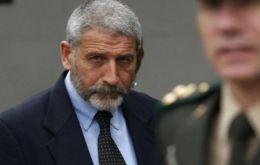
Retired Uruguayan Colonel Eduardo Ferro was sentenced Monday to 21 years in jail for the July 21, 1977, disappearance and murder of Communist militant Óscar Tassino, it was reported in Montevideo.
-
Tuesday, June 27th 2023 - 05:06 UTC
Uruguay's Parliament marks 50th anniversary of civic-military Dictatorship

On a cold and foggy night, the Parliament of Uruguay held a commemorative session on Monday to mark the 50th anniversary of the civic-military dictatorship that took place in the country from 1973 to 1985.
-
Tuesday, March 7th 2023 - 10:08 UTC
Uruguayan torturer convicted beyond prosecutor's request
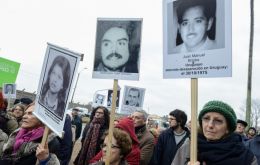
Former Uruguayan military officer Alejandro Ariel Ferreira has been sentenced to 9 years in jail for torture and crimes against humanity at the clandestine detention center known as “Los Vagones” during the 1973-1985 military regime, it was announced Monday. It was the first conviction by oral and public trial for crimes against humanity through the new criminal code and the first ruling for a crime under international law.
-
Saturday, December 10th 2022 - 10:16 UTC
Uruguayan paramilitary murderers sentenced to over 20 years in jail

Two members of Uruguay's infamous Death Squad have been handed down heavy prison sentences for their involvement in two murder cases, it was announced Friday in Montevideo.
-
Thursday, June 9th 2022 - 22:55 UTC
Uruguayan Air Force to help trace possible mass graves
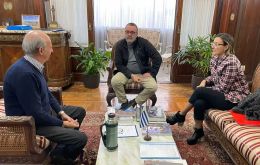
Uruguay's Air Force (FAU) will assist the Human Rights Institute in tracing possible burials of people forcibly disappeared during the military dictatorship using state-of-the-art laser technology, Defense Minister Javier García announced Wednesday.
-
Tuesday, April 19th 2022 - 09:39 UTC
Brazilian VP says torturers of military regime cannot stand trial: they're dead
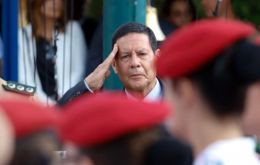
Brazilian Vice President Hamilton Mourao Monday said crimes committed during the country's military regime (1964-1985) cannot be investigated because “all those people are dead.”
-
Thursday, December 30th 2021 - 09:42 UTC
Argentina accountable for disappearance of two Uruguayans in the 1970s
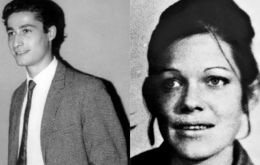
The Inter-American Court of Human Rights (IACHR) has determined Argentina was internationally responsible for the forced disappearances of Uruguayan nationals Mario Roger Julien Cáceres and Victoria Lucía Grisonas Andrijauskaite “perpetrated within the framework of the systematic plan of repression implemented in the 1976-1983 period and in the context of Operation Condor,” it was announced in San José, Costa Rica.
-
Friday, September 3rd 2021 - 09:45 UTC
Bolsonaro signs into law new norm ending security criminal types from times of military rule
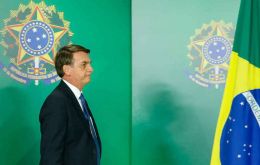
Brazil's President Jair Bolsonaro Thursday signed into law the bill whereby changes are introduced to the Penal Code's National Security chapter which dated back to times of military rule, and which will become effective 90 days from now.
-
Thursday, October 1st 2020 - 12:31 UTC
Uruguayan lawmaker, ex Commander-in-Chief, avoids the lifting of immunity due to accord in ruling coalition
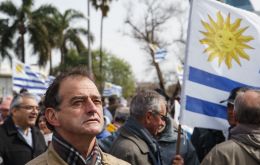
It is ten o'clock in the morning and the Senate of Uruguay has several hours of intense debate ahead of it. Only few minutes before midnight, the ruling coalition of parties will have put the lid on the criminal investigation against their partner and current leader of the Cabildo Abierto, investigated for the alleged omission of denouncing the confessions of crimes against humanity made by a former military man before a Court of Honor in 2018.
